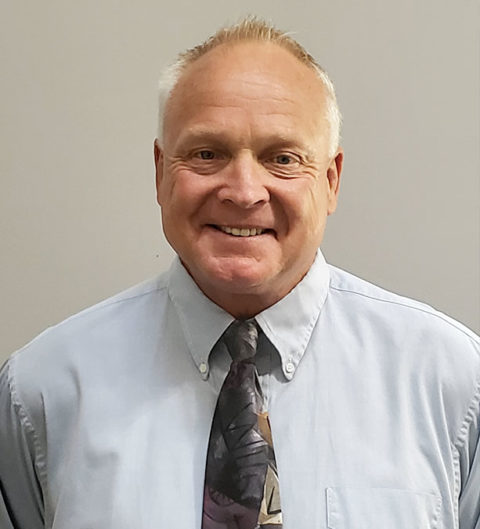“Many students come to our classroom with a number of life issues. Being mindful of those students who are troubled with a mental health disorder, coming from a single-parent household, or have gender issues is so important in the culture of our classroom. This is the starting point in creating a culture in which all students feel welcome, safe, and trust who you are as a person and teacher. Whatever job or trade that our students may focus on in the future, they need to be respectful of others and value other people with whom they will work.”
Stephen Glasder, the oldest of seven children and the son of an auto mechanic and trim carpenter, paid his way through college, inspired by the work ethic of his family. After earning his associate, bachelor’s and master’s degrees, Glasder, an athlete, wanted to coach and teach high school. Following in the footsteps of his own high school skilled trades teachers, Glasder became an industrial technology educator. He has dedicated the past 40 years to the classroom, including the past eight years at Harvard High School in Harvard, Illinois. He also serves as a football and wrestling coach.
Glasder’s program prepares students for careers in manufacturing, requiring them to take drafting before progressing through a sequence of computer-aided design, metals, welding and manufacturing courses, many of them dual articulated with a local college. His goal is to prepare students for two- or four-year college or an apprenticeship with the Tooling and Manufacturing Association (TMA).
Students start using tools on the first day of class, making chips with a machine that cuts metal—an immediate, hands-on application of drafting and math—and learn to read a precision instrument to an accuracy of 0.001 inch. The students then move from manual to computer numerical control (CNC) machines and, as Glasder said, “their jaws are now wide open… the wheels are starting to turn.” Glasder raised funds for the two CNC machines himself, which, he said, has contributed to the popularity—and rigor—of his class.
Glasder’s students go on to compete against high schools across Illinois—five placed first, second or third out of 600 entries in the 2018 TMA Precision Machining Competition—and pursue internships with local businesses, creating hundreds of parts for local manufacturers. The goal, Glasder said, is to help students understand that they are the best of the best. He also strives to connect with his students, 70 percent of whom are Latino, by talking sports and even striving to offer a manufacturing class to their parents to help them find better jobs with higher pay.
“As a young teacher 40 years ago, I didn’t understand the impact that a teacher could make. Today more than ever, I believe that young students are looking for guidance, understanding and leadership.”
